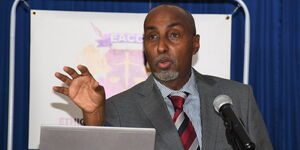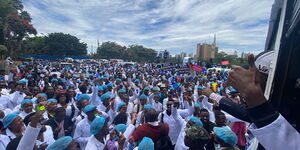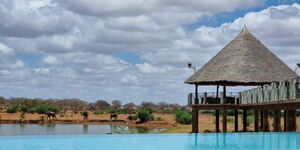Four filmmakers who were allegedly contracted by the British Broadcasting Corporation (BBC) to work on the damning ‘Blood Parliament’ documentary were on Friday, May 2, arrested in dubious circumstances.
The four, Nicholas Gichuki, Brian Adagala, MarkDenver Karubiu, and Chris Wamae, were arrested from their studios in Karen by the police before spending the night in Pangani and Muthaiga police stations.
News of their arrest was revealed by their business partners and this was further corroborated by their lawyer Ian Mutiso who disclosed their whereabouts in the two police stations.
During their arrest, police confiscated their equipment and hard drives. Reports that emerged indicate that the four were not charged, and their presence under police custody remained unclear.
In the aftermath of their arrests, a multitude of netizens including politicians expressed their displeasure and frustration at the nabbings with many believing their involvement in the damning expose was the sole reason behind their detainment.
Many opined that this was a bad move, accusing the government of wanting to go back to the days of abductions and enforced disappearances that led to protests in many parts of the country.
The documentary exposed the roles of the National Police Service and the Kenya Defence Forces in some of the killings witnessed during the Gen Z-led protests of June 25, 2024. In some of the clips shown, two members of the NPS and KDF were seen to be intentionally shooting at the peaceful protestors, leading to their demise.
The documentary drew a negative reaction from the government, with Government Spokesperson Isaac Mwaura calling it “one-sided.’
According to Mwaura, the government was concerned with the issues raised in the exposé and revealed that the government had written to the BBC in London, expressing its reservations about the misrepresentation of facts in the story.
Meanwhile, Homa Bay Town Member of Parliament (MP) Peter Kaluma called on the government to ban the BBC in Kenya following the release of the documentary.
Taking to social media on Monday, the ODM MP stated that the documentary dubbed 'Blood Parliament' sought to incite Kenyans to fury. Due to its crucial role in shaping societal conversations, Kaluma urged that the BBC's licence be revoked in Kenya, as the documentary was twisted, partial and reckless, in his opinion.
However, his counterpart from the Senate, Samson Cherargei, supported the BBC documentary, calling for further investigations.
Cherargei explained that this documentary reflected largely on what happened during the protests and should not be facing the kind of criticism it received from the government.












